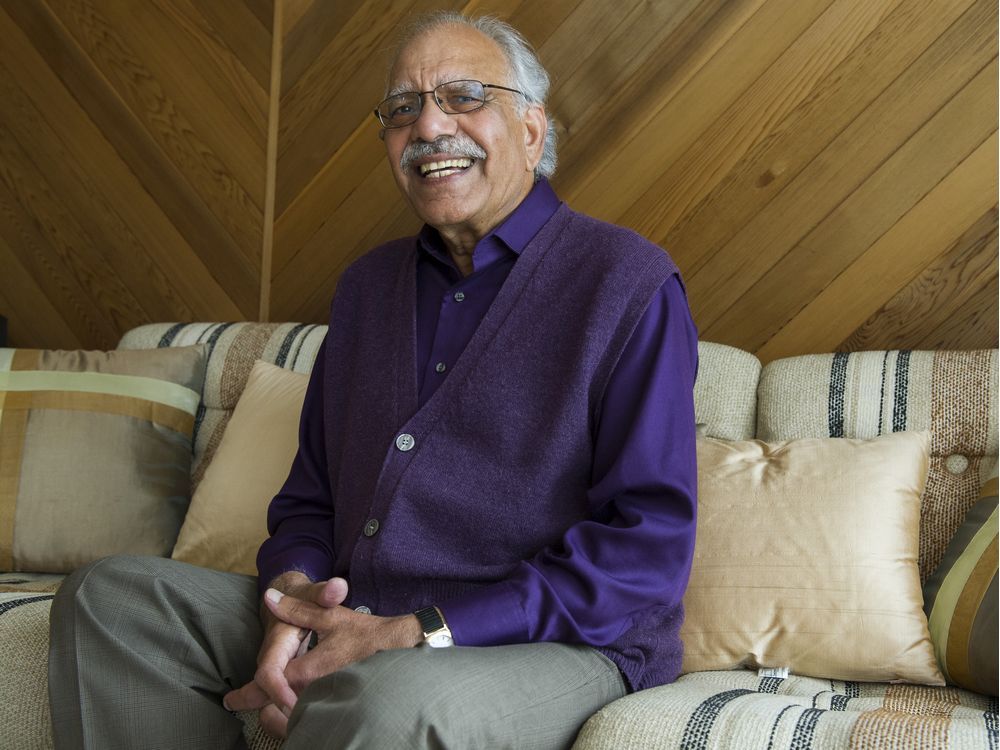Suresh Kurl: Social trust and diversity can co-exist if we try

Credit to Author: Gordon Clark| Date: Sat, 14 Sep 2019 01:10:32 +0000
Diversity has been working for me since Sept. 17, 1967, when I left India with my wife Tripta for York, U.K., on a one-year post-doctoral fellowship.
Then, the year stretched like a rubber band into two more years, sending me off to the College of Wooster in Ohio and to the University of Michigan in Ann Arbor.
It is true that my plan was to return to India, where a teaching position awaited me, but somehow the rubber bands kept getting longer and longer as time passed.
Before Aug. 30, 1970, when I crossed the border into Canada with my wife and year-old daughter Aparna to join the University of B.C., Canada had never been on my radar, although now it seems it was my destiny.
What made me decide never to leave Canada was not that it was a pluralistic, multicultural and diverse country. I stayed because of its beautiful mountains, clean healthy air, and relaxed and harmonious way of life.
I know, had I stayed in India, that country’s justice minister would never have walked up to me, watching me standing with my family, and shake my hand. That happened in Canada. I have not forgotten that day. He was Ron Basford, a cabinet minister in the Liberal government of Pierre Trudeau.
It is not true that I never encountered racism settling down in Canada. I did, but not more than I had gone through in India.
My middle school in India was located in a Muslim area. Although the community where my school was located was named after some holy man (peer), it was near a meat market where vultures perched on street electricity cables and waited for discarded pieces of raw meat to be tossed to them by the butchers.
We had to go through that long, stinky passage every day, twice a day, to and from home. Some of the butchers were very mean, especially to the Hindu children. They would wait until we passed, and as soon as they saw us they would toss out pieces of meat from behind their see-through bamboo curtains. Immediately, those hungry vultures would come swooping down, causing panic for us on the street.
Once it happened to me. A butcher who must have been waiting to have his morning fix, tossed a piece in my direction. Three birds swooped down over my head. I fell down. My satchel slipped off my shoulder. A little bit of food my mom had packed in a cigarette container, along with books, fell out of the satchel and scattered all over on the street. When I got up, my forehead was bleeding. Then, I heard someone laughing and asking, “aayaa mazaa?” “Did I have fun?”
Here, in Canada, it was a different experience. We used to encounter certain individuals congregating on Hastings Street outside the Woodward’s Store. They would make comments such as, “These f–king Hindus have come to take our jobs.” “Really?” we would wonder.
Twice I was turned down by landlords when I tried to rent publicly advertised properties. Once, a landlady told me she could not rent her house to “our kind of people, because our spices smell.” She was talking about the same spices for which the East India Company had sailed all the way to India in 1600.
Once, a muscle-bound white dude ordered me to vacate a park bench for him, where I was quietly munching on my sandwich during my break. I quietly vacated and walked away.
Since those years, Canada has changed a lot. It has truly become pluralistic, diverse, multicultural, multi-lingual and multi-faith. Go to any shopping mall and you will notice diversity in action — people conversing in different languages, made up in different attires, shopping for different kinds of foods.
Not only that, you will notice racially intermarried couples, walking, holding hands with their cute, interracially mixed children. My wife can never resist walking up to them and admiring them.
I know that not everyone admires this sight. Some Canadians find this a threat to their lifestyle. For me, it is a model of harmonious living.
The Conference Board of Canada estimates that “by 2034, immigration will account for 100 per cent of population growth as the number of deaths in Canada is expected to exceed births. Canada’s potential economic growth would slow from 1.9 per cent to an average of 1.3 per cent annually without immigration. In a no-immigration world, 26.9 per cent of the population would be 65 and over by 2040.”
We need immigration to maintain a lifestyle we have become so used to. I am happily retired, and next year will celebrate my half-century of Canadian living.
Suresh Kurl is a former university professor, a retired registrar of the B.C. Benefits Appeal Board, a former member of the National Parole Board, a member of the provincial committee on diversity and policing, and a public speaker.
Letters to the editor should be sent to sunletters@vancouversun.com. The editorial pages editor is Gordon Clark, who can be reached at gclark@postmedia.com.
CLICK HERE to report a typo.
Is there more to this story? We’d like to hear from you about this or any other stories you think we should know about. Email vantips@postmedia.com